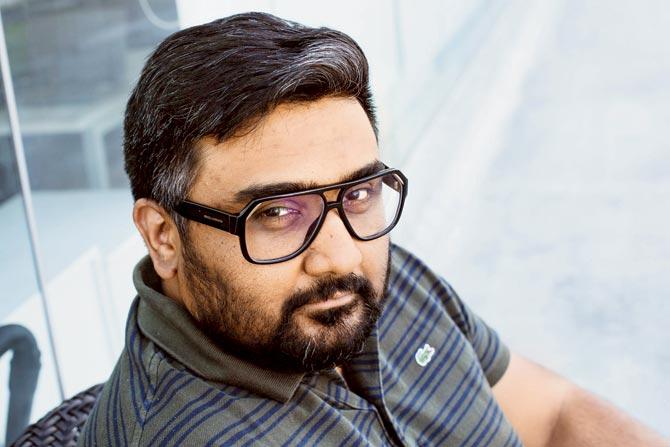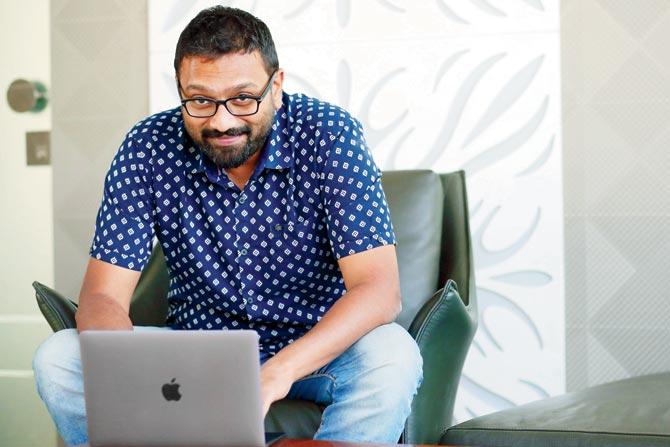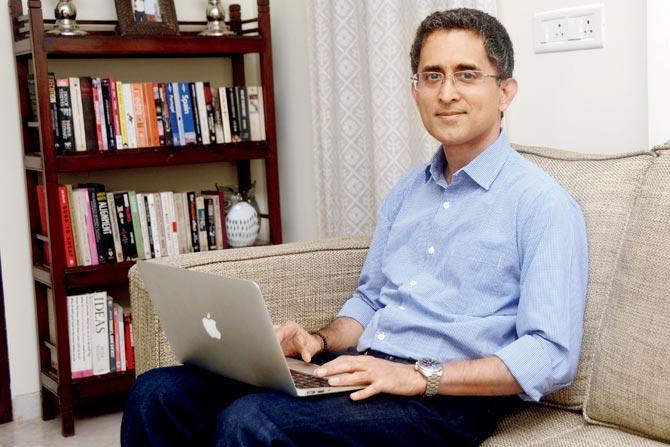Four names behind India's most successful startups share what it takes to break emotional ties with their first venture, the adrenaline rush to start another firm and why the future is always better

Ashish Kashyap
One would think selling the company you co-founded for a whopping $400 million would entitle you to a life of leisure. Not if you are Kunal Shah, who is now raring to get the adrenaline rush back after launching another startup called Cred just two weeks ago. Shah - who co-founded Freecharge in 2010, made headlines when he sold the firm to Kunal Bahl-owned Snapdeal in 2015 after weeks of negotiations - is one of those rare guys in the startup ecosystem without any background in tech.
"I did my BA in philosophy from Wilson College in Mumbai; later on dropped out of MBA from Narsee Monjee Institute of Management. I then ran a BPO company and also did some six to seven business stints within companies. So, the entrepreneurial streak was always there," says Shah, who has lived in Mumbai for most part of his life.
Kunal Shah
First time lucky
Shuttling between Mumbai and Bengaluru - where the Cred office is located - Shah says, "We started PaisaBack, a cashback promotions company, in 2008. PaisaBack was the predecessor of digital payment platform FreeCharge. After doing a lot of research, we finally launched FreeCharge in 2010 through self-funding. In the first few months itself, we realised how big the company was becoming. When we went to Sequoia Capital in 2011 seeking investment, we were asked for the number of transactions being done on our platform. We told them we'd reached about 15,000 transactions per day and they were shocked. They readily agreed to invest. From there on, we found many more investors." Not everyone has had it this easy however.

Aprameya Radhakrishna
Forty-four-year-old Ashish Kashyap says being made the country manager of Google India in 2005 is what gave him the experience needed to launch Ibibo in 2007. The Delhi-based serial entrepreneur says, "Goibibo was built entirely by me. However, I bought Redbus in 2012. While Goibibo became the largest platform for hotel reservations and the second largest air-ticketing platform in the country, Redbus became the largest bus ticketing company."
But Kashyap faced several challenges as the ecosystem of venture capital and talent had not yet developed. The economics graduate from Kirori Mal College adds, "People wanted to join TCS and other companies, so it became difficult. I also plunged into becoming an entrepreneur without much research. Till 2012, Ibibo was under the radar, nobody talked about us. So I had to fight my way. I then partnered with Naspers, a South African group, and another investor."

Jiby Thomas
Bidding adieu
Considering the roil it takes to build up a company from scratch and make it worth millions, what does it take to let it go? "We had an option to either raise more money or sell to Ola or Uber," says Aprameya Radhakrishna, who started TaxiForSure in 2011 at the age of 29. TaxiForSure happened when Radhakrishna sat with his friend Raghunandan G to strategise on ways to make commute in India easier. "After doing consumer research and speaking to drivers, we founded TaxiForSure in 2011. For a year, the company was self-funded. From getting three to four bookings per day, we reached a point where we had some 30 to 40 bookings. And then we got some investors on board."
But by 2015, competition for TaxiForSure, which had by then expanded to metropolitan cities, became tough. In March 2015, TaxiForSure was sold to rival Ola for $200 million. "It was just a moment in the journey, where you had to take a call keeping in mind what is best for all stakeholders in the company. We had a good offer on the table and thought of exiting right away," says Radhakrishna.
But, it wasn't such a clean cut for Shah. The sale to Snapdeal - the biggest-ever acquisition in the history of India's internet industry - he says, "wasn't a distress one. We had a $100 million in the bank when we sold the company." Shah adds that when FreeCharge merged with Snapdeal, things didn't quite pan out as he expected. "There was no internal conflict, but various key decisions such as capital coming to the firm, etc., were made by Snapdeal. So, we thought there is no point in staying around."
How easy is it to move on? "One can only be emotional up to a point. Even when you raise a baby, you have to let it go for it to do something of its own. It is painful, but that is life," says Shah. Radhakrishna is even more matter-of-fact: "One door closed, but many more opened."
Kashyap, however, feels parting ways was the hardest part of the climax. After being associated with the Ibibo Group for around 10 years, Kashyap sold his venture to MakeMyTrip in 2016. He recalls, "I had hired most employees and trained them from scratch. For every business there comes a tipping point. For us, it was between 2012 and 2013; when the business really took off. It was all about great timing. We delivered for everyone, from customers to airlines to hotels to shareholders. But when the time came to unlock the value and give returns to investors, it was the hardest. I had never imagined it would be this hard. Everything that you created from your logo to user interface, Goibibo's GoCash and GoContacts, taking a batch to Latin and Southern America and then suddenly parting ways with them."
Shah feels that as an entrepreneur, self-doubt never goes away. But it is that paranoia that helps you do better things. He adds, "Things didn't quite work out post my exit. I took a break for a year and did 30 to 40 angel investments. I also worked as an advisor for a company. But in a country like India, we do not even understand the concept of selling a company. Although my decision to sell FreeCharge had a good financial outcome for everyone in my team, everybody in the family called me up to express regret. They thought I'd run out of money. This situation is very similar to being in a bad love relationship; we don't walk out of it because there is so much shame attached to it. But if things are not working out, it is best to shut it down and move on versus sit and suffer."
Brewing ideas
Radhakrishna, too, took to angel investing for about six months. It was in 2017 that he started Vokal - an Indian language question-answer platform for users not conversant in English. Funded by Accel Partners and Blume Ventures, the app has nearly half a million downloads so far.
This year, Kashyap started INDwealth - an artificial intelligence and machine learning-based wealth management and advisory platform. The platform has raised an estimated $30 million in seed funding from UK and Hong Kong-based hedge fund Steadview Capital. He says, "I had absolutely no idea what I was going to do next till my last day of exiting Ibibo. But things have worked out, nonetheless."
But are they willing to undergo the stress of growing another venture all over again? Yes, they say in unison. Kashyap says, "I am more excited than ever before. For serial entrepreneurs, the true spirit is seen in building products that matter; and that is exactly what I am doing now." Shah, too, believes that it is only the pressure to do something better that keeps one going.
While the numbers of entrepreneurs quitting their first successful ventures and moving on to start a different firm are rising, is it good for business? Not always, feels Jiby Thomas, who started Quikr in 2008, put in his papers in 2012 and started Web Butter Jam, a digital marketing startup the next year. For Thomas, who started his professional life with an advertising agency, this was not new ground.
He says, quitting a venture has now become a quick-fix solution for many. "In India, there are many entrepreneurs who are well-educated, young and talented. There is a big wave of entrepreneurship in India and I admire it. But people have a tendency of getting too excited and making the wrong decisions. This is when good VCs step in. You can call it interference, but they are around only to guide you. Welcome this new entrant and remain focused to achieve your goals. Don't build a business to sell it; build a business to address a problem that is not being efficiently handled today," he advises before signing off.
Catch up on all the latest Mumbai news, crime news, current affairs, and also a complete guide on Mumbai from food to things to do and events across the city here. Also download the new mid-day Android and iOS apps to get latest updates
 Subscribe today by clicking the link and stay updated with the latest news!" Click here!
Subscribe today by clicking the link and stay updated with the latest news!" Click here!









